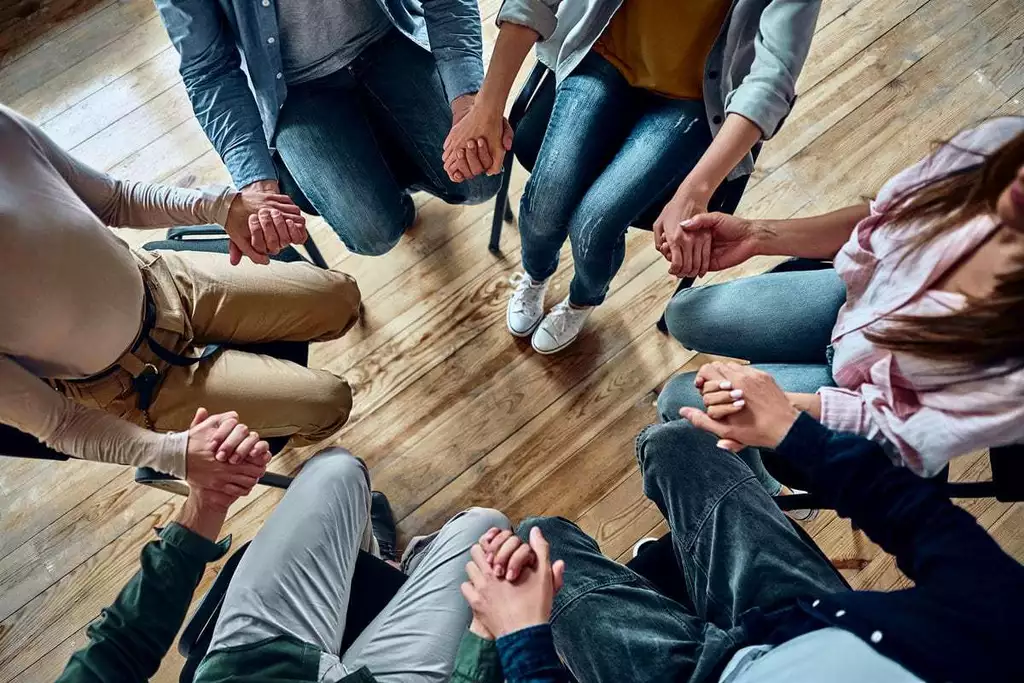For the group’s first half, allow your clients to paste the strips to their posters. All addictions have the capacity to induce a sense of hopelessness and feelings of failure, as well as shame and guilt, but research documents that recovery is the rule rather than the exception. Individuals can achieve improved physical, psychological, and social functioning on their own—so-called natural recovery. And still others opt for clinical-based recovery through the services of credentialed professionals. Over time, pursuit of the pleasurable effects of the substance or behavior may dominate an individual’s activities. A card deck with 104 cards with thought-provoking questions intended to promote discussion.
Discover Therapy Worksheets to Help Your Clients
- In group sessions, everyone knows that everyone else there has faced similar issues.
- Daily mood charts or mood trackers are a great way to help clients understand the link between their environment, situation, and feelings.
- Group therapy sessions dedicated to goal setting help individuals define their aspirations, both in the short-term and long-term.
- A 1-page worksheet for exploring motivation for substance use recovery.
- You’ll find more on cooking as a group therapy intervention in Farmer et al.’s (2018) paper, Psychosocial Benefits of Cooking Interventions.
- The following books, videos, and podcasts are packed full of information on group therapy.
Have group members collaborate and come up with a group motto based on the goals and outcome of the group sessions. These group activities can be applied to group settings to improve personal growth and self-esteem. This worksheet on radical acceptance can be completed individually inside or outside of a group session.
Biden-Harris Administration announces $46.8M in behavioral health funding

Burns finds that these ANTS can cause depression and anxiety and lead to low self-esteem, self-doubt, and a host of other problems. This fun activity is based on the work of renowned psychologists Elisha Goldstein, Aaron Beck, and David Burns. Encourage your group to be as heartfelt and descriptive as they wish for a deep exploration of their feelings and thoughts. The directions instruct the child to fill in the blank “When I feel…” with a specific emotion.
What is Group Therapy? Definitions and Theories
- The directions instruct the child to fill in the blank “When I feel…” with a specific emotion.
- For participants, there are many reasons why group therapy is a treatment worth considering.
- These rules must be followed for the safety of the group and the effectiveness of the treatment.
- A worksheet for clients to pass around to group members so each person can write a positive affirmation.
- These creative outlets can also serve as healthy coping mechanisms to practice outside of the group setting, helping people manage stress and creatively process their feelings.
Addiction is not limited to biochemical substances such as cocaine, alcohol, inhalants, or nicotine. It can involve behaviors that provide opportunities for immediate reward. On this site, you’ll find numerous articles on goal-setting to help you get your first group session on track. You will also find different interventions, exercises, meditations, and more in our Positive Psychology Toolkit.
As humans, we are social creatures with personal histories based on the various groups that make up our lives. That’s why some recovery groups have members anonymously write down their fears and place them in a bowl or bag. The group leader then reads each fear, allowing members to identify shared fears and feel less alone. This exercise demonstrates the importance of sharing your feelings so you don’t confuse your loved ones. Triggers are people, places, feelings, or other things that make you want to abuse drugs.
Center for Mental Health Services (CMHS)
Activities can encourage discussion when members may be reluctant or unsure of how to contribute to the conversation. Lastly, substance abuse group activities can provide group leaders with an opportunity to provide psychoeducation in an interactive way that members respond to. Group therapy provides a platform for individuals to share their personal triggers and learn from the triggers of others. Discussing coping strategies and creating an individualized plan for avoiding or dealing with triggers is essential in group therapy. The program here at Two Dreams focuses on the improvement of one’s life through the achievement of mental peace, physical well-being, and personal productivity. We particularly emphasize mindfulness, the concept of intentionally paying attention, and being present in the moment with compassion, with acceptance, and without judgment.
Daily mood charts or mood trackers are a great way to help clients understand the link between their environment, situation, and feelings. Therapists can then help members understand the relationship between situations and emotions and how clients can better cope with those emotions in the future. Some people find it hard to say no to substance use in social gatherings or parties.
Marijuana and hallucinogen use among young adults reached all time-high in 2021 National Institute on Drug Abuse – National Institute on Drug Abuse
Marijuana and hallucinogen use among young adults reached all time-high in 2021 National Institute on Drug Abuse.
Posted: Mon, 22 Aug 2022 07:00:00 GMT [source]
Many support group meetings and group therapy sessions start with check-ins. They can also discuss any recent challenges or successes related to their substance abuse group activities recovery journey. ChoicePoint aims to improve the quality of life for people struggling with substance use disorder and mental health issues.

People opting for group therapy and support groups are often looking for peers to offer guidance and support in their recovery journey. Lock and key activities can be fun to break the ice and allow peers to connect and share their experiences. Let’s dive into the list of CBT group activities for adults recovering from substance use disorder and mental health issues. Research indicates that individuals who engage in treatment and remain committed to recovery often experience positive outcomes. These outcomes include significantly reduced drug and alcohol misuse, decreased criminal activity, and improved overall social and psychological well-being.
